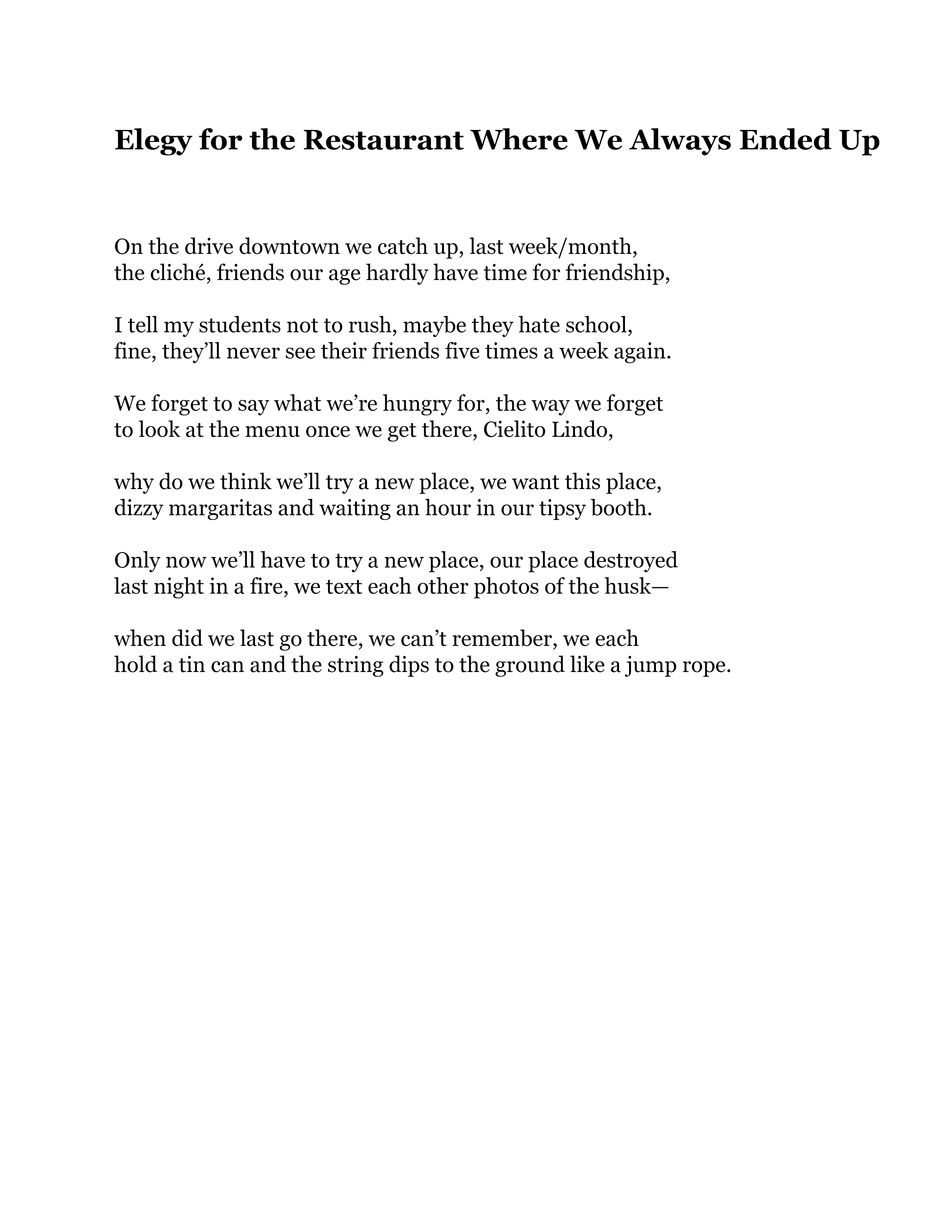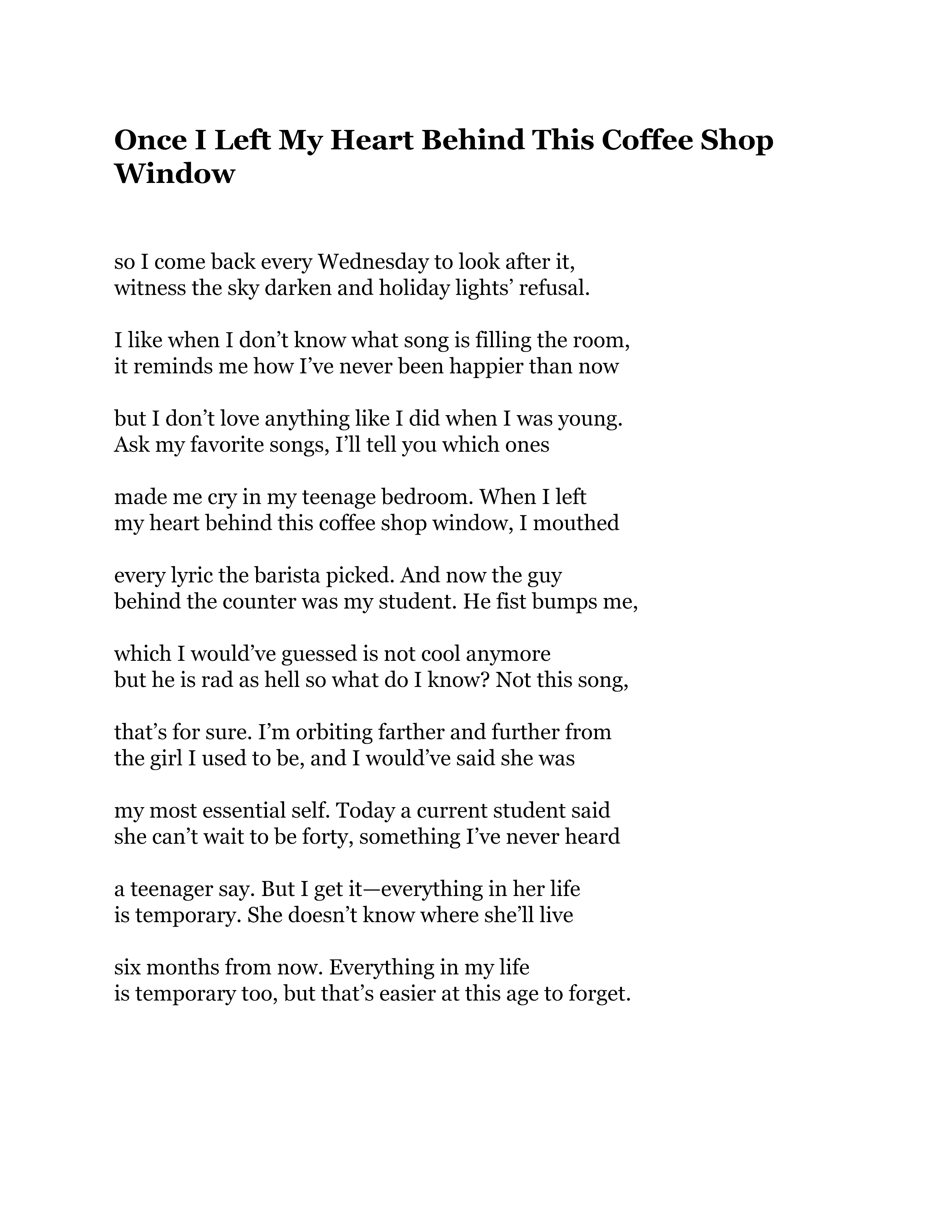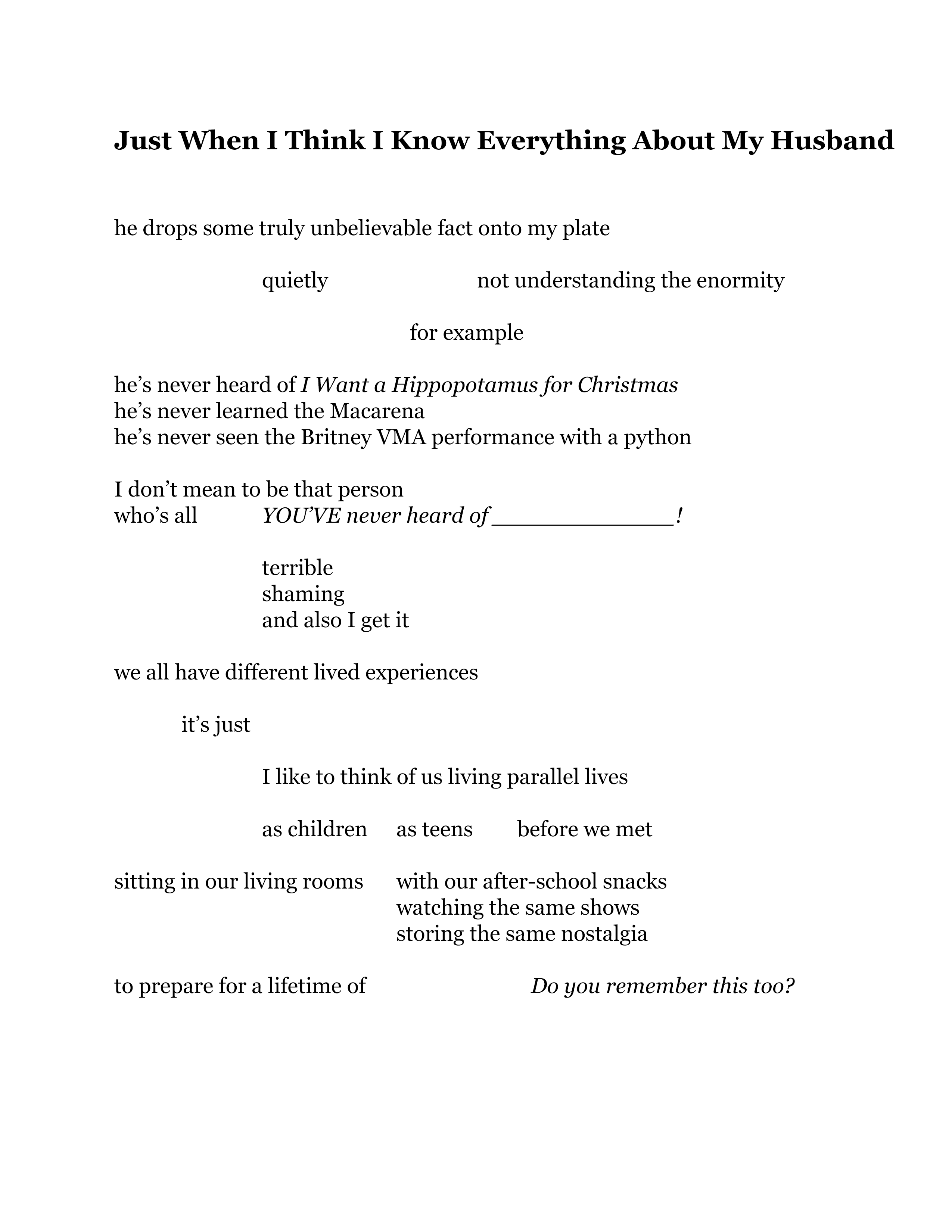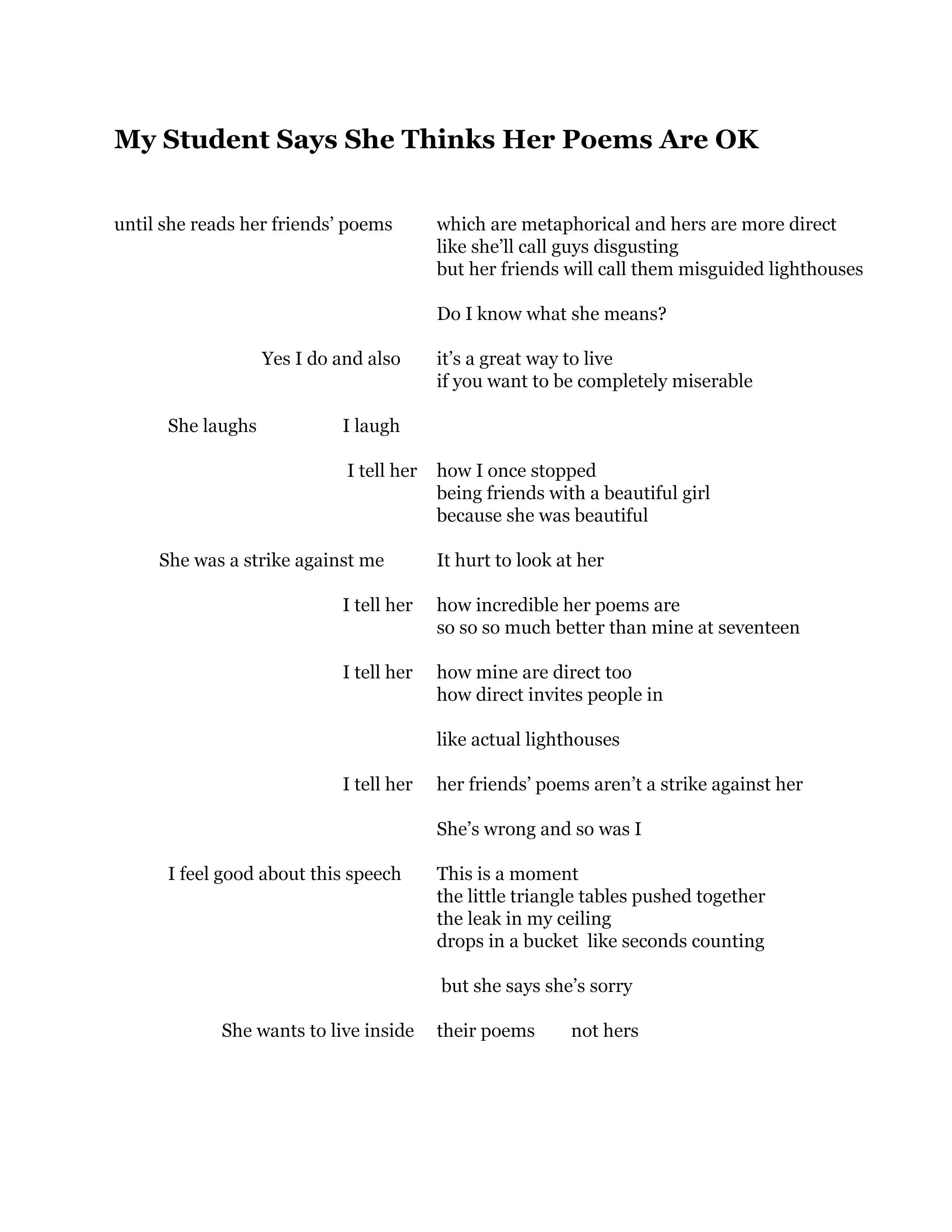4 poems by Melissa Fite Johnson
1 essay by Elsbeth Pancrazi,
on the poems of Melissa Fite Johnson
Landscape of Youth Viewed at a Distance
The disconnect between where we are and where we wish to be: it’s always present, these poems seem to say. They bring a pinpoint focus to some of the elements in that relation. Take the restaurant where we always ended up—it burns down, and with it, a kind of friendship that never actually took place there, but also is gone. The wound occludes another wound, the absence replaces another absence.
The speaker is always situated in contrast to her youth. Her young self is listening to music or seeing friends “five times a week.” Or she’s looking into the funhouse mirror of her students and their concerns. The young self was feeling, the speaker is still feeling but now is also concerned with understanding, dissecting, noticing. Experiencing feeling from the vantage of the mind.
The familiar handholds in these poems (like the Macarena and the VMA awards) are so familiar at times they seem embarrassing (Mom, please!), maybe cootie-ish to touch. These are signs that we are in the real world. As a useless light switch in a dream alerts us to the fact that we are dreaming, these symbols prove reality by how they operate on us. I Want A Hippopotamus for Christmas activates its tinny traipse through my mind.
I don’t know if I’m a rat navigating one of Pavlov’s mazes or if this is deep image stuff, man. I wouldn’t choose to be re-running these teenage feelings, so I guess the poems are working on me. They are “direct,” they “[invite] people in,” the poet claims. I’m in, that’s for sure, but it happened by more than invitation, by something like a trap door.
The disconnect between where we are and where we wish to be: it’s powerful stuff.




